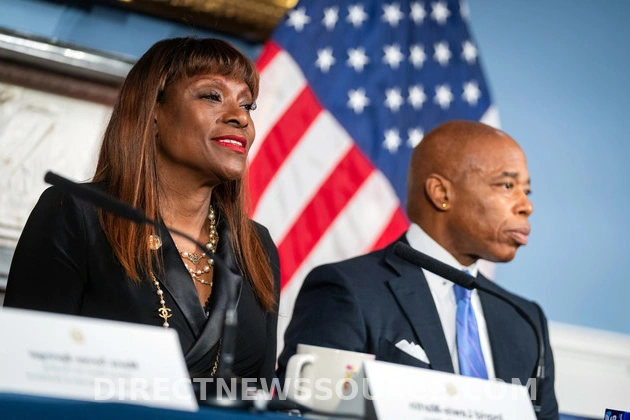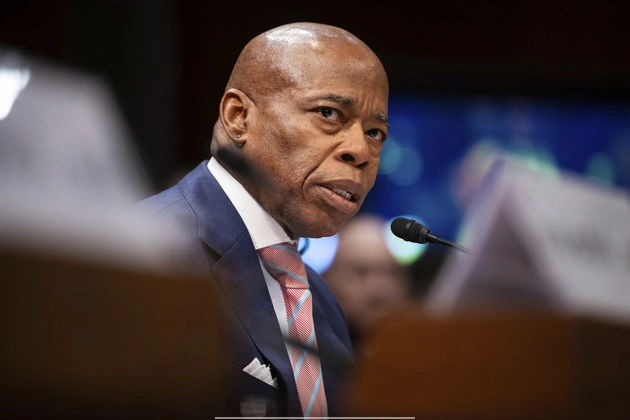
NEW YORK — Mayor Eric Adams of New York City encountered a series of obstacles on Monday, exacerbating the fallout from ongoing investigations into him and his inner circle. This turbulent period coincides with his efforts to stabilize his political position.
Mounting Challenges for Mayor Adams
The day began with the city’s Campaign Finance Board withholding $4.5 million in public funds for Adams’ reelection campaign. Shortly after, his trusted aide, Ingrid Lewis-Martin, disclosed that she would soon face corruption charges from the Manhattan district attorney.
Simultaneously, President-elect Donald Trump hinted at the possibility of pardoning Adams in his federal bribery case. While this gesture offers legal relief, it also presents a political conundrum in the upcoming Democratic primary.
Political Landscape and Strategic Shifts
Amidst these challenges, Adams confronts criticism from lesser-known Democratic contenders vying to unseat him. Furthermore, the potential entry of former Governor Andrew Cuomo into the primary adds another layer of complexity to the political landscape.
In response, Mayor Adams has intensified efforts to alter the narrative surrounding him. He attributes the scrutiny to his vocal critiques of outgoing President Joe Biden, denounces unfavorable media coverage, and highlights accomplishments in public safety, tax relief, and affordable housing.
Consequences of Recent Events
Despite these endeavors, the barrage of negative developments on Monday proved insurmountable. The denial of matching funds compels Adams to engage in prolonged fundraising ahead of the Democratic primary next June, posing a substantial setback for the incumbent.
The board’s decision stemmed from a federal indictment implicating Adams in a bribery scheme with the Turkish government. While he maintains his innocence, the impending trial in April casts a shadow over his campaign.
Implications and Future Prospects
Moreover, the denial of funds serves as a potent campaign attack that may haunt Adams throughout his reelection bid. Political observers foresee heightened challenges for him, particularly within the Trump-skeptical Democratic electorate.
Despite these hurdles, Adams remains resilient and resilient, emphasizing his campaign’s fundraising prowess and addressing the departure of Lewis-Martin, his longtime confidante.
As investigations into Adams and his close circle persist, the specter of legal troubles looms large. Speculation surrounds potential cooperation with Manhattan prosecutors, hinting at escalating legal pressures.
Political Dynamics and Personal Reflections
Notably, President-elect Trump’s expressed sympathy towards Adams raises intriguing possibilities amidst allegations of political vendettas. Adams’ criticism of Biden’s policies forms a central point of contention, underscoring the intersection of legal battles and political maneuvering.
While a presidential pardon offers a lifeline, it also poses a significant dilemma in a city that resoundingly rejected Trump in the previous election. The impact of such overtures on the Democratic primary remains a subject of speculation.
Strategic Responses and Future Trajectory
Adams’ diplomatic stance towards Trump and strategic engagements post-election reflect nuanced political calculations. His emphasis on policy discussions and collaborations underscores efforts to navigate turbulent waters effectively.
Despite the challenges, Adams’ recent policy wins and organizational reshuffles signal resilience and adaptability. As the administration focuses on governance amidst probes and transitions, a steadfast commitment to service underpins Adams’ leadership.
In conclusion, Adams’ journey encapsulates the complexities of contemporary politics, resilience in the face of adversity, and the enduring quest for effective governance.















